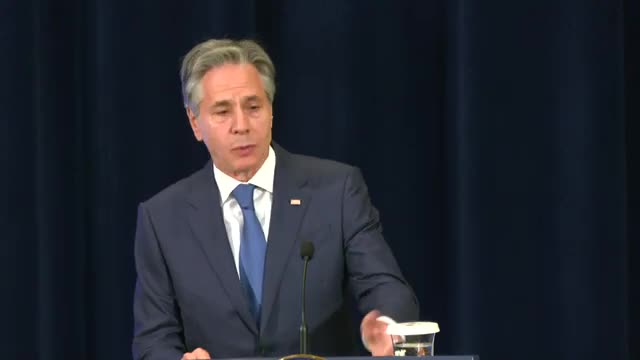AI Revolutionizes Diplomacy and Foreign Policy Strategies
June 28, 2024 | US Department of State

This article was created by AI summarizing key points discussed. AI makes mistakes, so for full details and context, please refer to the video of the full meeting. Please report any errors so we can fix them. Report an error »

In a recent government meeting, officials highlighted the critical role of artificial intelligence (AI) in modernizing foreign policy and enhancing diplomatic efforts. The discussion centered around the implementation of the president's executive order on AI and the International Cyber and Digital Strategy, which serve as foundational elements for the ongoing integration of technology within the State Department.
The meeting underscored the release of the enterprise AI strategy last fall, which aims to leverage AI to streamline operations and improve analysis. Officials emphasized that AI can automate routine tasks, allowing personnel to focus on more strategic work, thereby enhancing efficiency. For instance, tasks that typically take days or weeks can now be completed in seconds, significantly improving productivity.
Moreover, the use of AI is seen as a means to combat disinformation and support negotiations in multilateral organizations. The department is actively testing AI applications to uncover new insights and improve decision-making processes. However, officials cautioned that while AI presents numerous opportunities, it also poses risks that must be managed carefully.
To facilitate the integration of AI, the State Department is launching \"AI. State,\" a central hub designed to provide training and resources for staff. This initiative aims to foster a culture of innovation and encourage employees to explore AI's potential in their work.
The meeting concluded with a call to action for staff to engage with AI technologies, emphasizing that these tools are only as effective as the people who use them. As the department moves forward, officials expressed optimism about the transformative impact of AI on diplomacy and international relations, while also acknowledging the need for responsible and informed usage.
The meeting underscored the release of the enterprise AI strategy last fall, which aims to leverage AI to streamline operations and improve analysis. Officials emphasized that AI can automate routine tasks, allowing personnel to focus on more strategic work, thereby enhancing efficiency. For instance, tasks that typically take days or weeks can now be completed in seconds, significantly improving productivity.
Moreover, the use of AI is seen as a means to combat disinformation and support negotiations in multilateral organizations. The department is actively testing AI applications to uncover new insights and improve decision-making processes. However, officials cautioned that while AI presents numerous opportunities, it also poses risks that must be managed carefully.
To facilitate the integration of AI, the State Department is launching \"AI. State,\" a central hub designed to provide training and resources for staff. This initiative aims to foster a culture of innovation and encourage employees to explore AI's potential in their work.
The meeting concluded with a call to action for staff to engage with AI technologies, emphasizing that these tools are only as effective as the people who use them. As the department moves forward, officials expressed optimism about the transformative impact of AI on diplomacy and international relations, while also acknowledging the need for responsible and informed usage.
View full meeting
This article is based on a recent meeting—watch the full video and explore the complete transcript for deeper insights into the discussion.
View full meeting